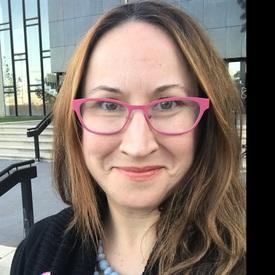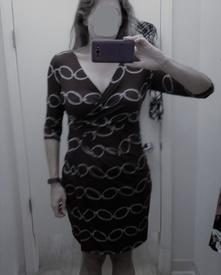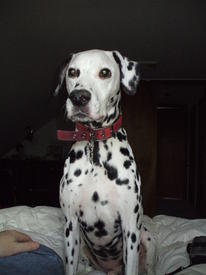How do you allot your calories?

Jessie24330
Posts: 224 Member
Do you just eat what you want for each meal and then plan later in the day with what have left over? Or do you start each day with a certain amount for each meal/snack? I've always done the first but I'm starting to think that there may be a benefit to saying "I'm gonna eat xxx calories for breakfast, xxx calories for lunch, xxx calories for dinner and xxx calories for snacks". I hope this makes sense.
0
Replies
-
I usually pre-plan and pre-log dinner for the day first thing in the morning. As dinner's my most caloric meal of the day, breakfast and lunch get worked around what's left.
If I know dinner's going to be on the high side, calorie-wise, I'll go with lighter options for breakfast and lunch. I just find it easiest for me to stay within budget that way.3 -
I just eat what fits within my calorie and macro goals. I pre-log the day before for the most part.
0 -
i preplan and prelog everything.
my calories almost everyday go:
breakfast 200-ish
lunch 300-ish
snack 200-ish
dinner 800-ish0 -
generally speaking, ill plan for my highest calorie meal (usually dinner), and then plan everything else around that.2
-
I don't count calories anymore, but I started by splitting them into reasonable chunks, prelog all meals, and then adjust as I go. I have had different setups and different numbers of meals. Now I assign half of my calories for dinner, and split the remainder into the three other meals. It's not exact, and not the same every day, but it evens out over time.0
-
I have 3 meals = 300-400 calories each. There is room for a 100 calorie snack in there. Lunch is my biggest meal, so I adjust dinner for what calories I have left.0
-
I'm another big dinner planner, but I've had some very early/long days recently, and I have had to break things up more evenly in order to not starve during the day. Looking forward to my routine getting back to normal. I'm also generally a breakfast skipper, but that's just not possible at the moment.
I only preplan and prelog the entire day if I feel likely to struggle or have something special to fit in.0 -
I log my 3 meals in the morning, then I log my milk for coffee and whatevers left I choose snacks to take me up to my calorie limit. I used to just log as I ate but I ended up with no calories left for after dinner.0
-
I eat about 200 for dinner, 4-500 for lunch, and I like to leave a lot for dinner (around 1000) so that I have something to look forward to.
 0
0 -
I typically eat the same things or very close to the same things for breakfast and lunch since I eat those at work. On weekends I pre-log these in the morning. Dinner differs but is typically in the same calorie range each night. I adjust my snacks if I need more or less calories for the day.
If I am going out to lunch or dinner I look up the restaurant online and decide what I'll order. I pre-log that and then adjust other meals and snacks as needed. Or if an unexpected lunch/dinner comes up and I go over, or I choose to splurge on calories while out, then the next day or two I try to be slightly under so that my net across those days is within range.2 -
I'm another dinner prelogger. I don't want to eat an extra snack and then get stuck at the end of the day with 100 calories for dinner. My breakfasts and lunches are usually about 400 cals and dinners tend to be around 500-600 cals, giving me about 600 cals leftover for my snacks.1
-
I don't eat breakfast... I really never have, just coffee. at around 10 if I'm hungry I'll eat an apple. Then at lunch I usually have a salad, apple, 1 serving of carbs (like bagel chips). I log that in first thing in the morning. Then for dinner, I'll log it in as I'm making my plate. Everyone's different... eat when you are hungry. This is my norm. I try to be consistent for morning and lunchtime.0
-
I love huge dinners, so I plan for about 1000kcal for dinner and a nighttime snack. Then I allocate the rest of my calories, depending on how much activity that day's going to have. My breakfast is almost always 400kcal because I'm a creature of habit who eats the same breakfast every day. That leaves my lunch, which is also usually around 400kcal, but fluctuates higher on occasion. On the rare days I don't eat breakfast, I get a treat for lunch like fast food.
Any other calories given to me by high activity are for snacks and coffee throughout the day. I love snacks and coffee.0 -
I only prelog if I'm struggling to stay within calories, generally I log as I go, but I like to have breakfast and lunch logged before I eat dinner, so I know how many calories I have in hand and whether I can have dessert or not. I prefer to know that in advance.
Prelogging is a great tool, though, if you're struggling to stay on track or know you're going you have a lot of temptation that day.0 -
I pre-log my day but I always chose what I wanted. I noticed that I usually ate about the same amount of calories each day though for particular meals. I work with that pattern when I pre-log and I am satisfied. If I am making changes to one meal it makes it easy to just look for something around that calorie count for the meal.
Breakfast- about 200-300 calories
Lunch- about 300-500 calories
Dinner- about 500-600 calories
Snacks- about 100-300 calories
0 -
Let me first say I despise reading labels, weighing and measuring food amounts and planning in general but it is the single best way (and teacher) to stay on track with weight loss. Particularly early on when your idea about 5oz serving of meat or 1 cup of any product is in all likelihood so skewed that if you wing it or don't plan in some form your consistency and overall success likely goes down. Humans are notoriously bad about serving sizes and it always in the favor of bigger/more calories. I think you will find over time your skills at accessing serving sizes and rough amount of calories will improve to the point where you will be able to look at something and know both approximate size and calories with that serving size. Why is this important? One thing I read multiple times and the answers I received from skinny people (minimum age was graduated from college because fast metabolism skews results otherwise) when I asked, they consistently ate the same things over and over. I can't tell you how much I hated the idea of that, as I like almost all foods and the better it taste the more I want to eat, after all isn't variety the spice of life? Well, I came to find out that the biggest key to success of dropping and keeping the weight off is to choose a number of foods (typically high volume, low calorie dense foods) that you like and stick with them. This does not mean you have to eat the exact same thing every day or totally give up something your really don't want to but lets not kid ourselves we are talking about a permanent change in lifestyle not a short term loss for a class reunion. There are multiple reasons you sort of get to this point, if you don't want to have to measure forever you can't really memorize every calorie count and serving size of every product in the grocery store. The truth is there really isn't really an over abundance of low calorie high volume REAL foods to choose from (there are enough but its not like half the grocery store is comprised of them). The measurement shows you in simple math terms regardless of the foods you eat where your Total Daily Energy Expenditure (TDEE) is and how much the food you chose to consume counts against that number. If you are trying to stay below that number to lose weight it won't take you long to realize which foods will do that for you and still provide you satiety. The satiety part of the equation is important because lets say you have 1800 calories to play with to burn if you eat something that burns through half those calories in one meal. You are going to be hungry by the end of the day and be at your limit on calories. I don't have to tell you this is a formula for failure. Ultimately I guess this would be what you say is planning but after a while is sort of becomes second nature in the grocery store and planning would be when you do something special/different.2
-
Let me first say I despise reading labels, weighing and measuring food amounts and planning in general but it is the single best way (and teacher) to stay on track with weight loss. Particularly early on when your idea about 5oz serving of meat or 1 cup of any product is in all likelihood so skewed that if you wing it or don't plan in some form your consistency and overall success likely goes down. Humans are notoriously bad about serving sizes and it always in the favor of bigger/more calories. I think you will find over time your skills at accessing serving sizes and rough amount of calories will improve to the point where you will be able to look at something and know both approximate size and calories with that serving size. Why is this important? One thing I read multiple times and the answers I received from skinny people (minimum age was graduated from college because fast metabolism skews results otherwise) when I asked, they consistently ate the same things over and over. I can't tell you how much I hated the idea of that, as I like almost all foods and the better it taste the more I want to eat, after all isn't variety the spice of life? Well, I came to find out that the biggest key to success of dropping and keeping the weight off is to choose a number of foods (typically high volume, low calorie dense foods) that you like and stick with them. This does not mean you have to eat the exact same thing every day or totally give up something your really don't want to but lets not kid ourselves we are talking about a permanent change in lifestyle not a short term loss for a class reunion. There are multiple reasons you sort of get to this point, if you don't want to have to measure forever you can't really memorize every calorie count and serving size of every product in the grocery store. The truth is there really isn't really an over abundance of low calorie high volume REAL foods to choose from (there are enough but its not like half the grocery store is comprised of them). The measurement shows you in simple math terms regardless of the foods you eat where your Total Daily Energy Expenditure (TDEE) is and how much the food you chose to consume counts against that number. If you are trying to stay below that number to lose weight it won't take you long to realize which foods will do that for you and still provide you satiety. The satiety part of the equation is important because lets say you have 1800 calories to play with to burn if you eat something that burns through half those calories in one meal. You are going to be hungry by the end of the day and be at your limit on calories. I don't have to tell you this is a formula for failure. Ultimately I guess this would be what you say is planning but after a while is sort of becomes second nature in the grocery store and planning would be when you do something special/different.
Protip: If you break your posts up into paragraphs it's much easier to read.
I think you have some valuable information in there, so making this small change might help the visibility of your posts.3 -
I usually have the same thing for breakfast, sad i know, but i like it and it's 200 cals. lunch is usually 400-500 calories and dinner again 400 to 500. i always earn some sort of exercise calories and if i'm running i eat some f them back in healthy snacks. i dont wing it very often. some days i pre-log if i know what i fancy for dinner that day, others i just try to stick within the calorie range i give myself.0
-
It's interesting to see how many people pre-log. I don't think that would ever work for me (I usually change my mind about dinner 32+ times a day lol) but I didn't realize it was so common.1
-
I eat the majority of my calories early in the day. I have to switch it up on days I'm having dinner out with friends, but generally I like it. I'm almost never tempted to snack in the evenings, I guess because my mind/body isn't used to eating in the evenings. If I've overeaten during the day, I have all evening to compensate with exercise.0
-
Jessie24330 wrote: »It's interesting to see how many people pre-log. I don't think that would ever work for me (I usually change my mind about dinner 32+ times a day lol) but I didn't realize it was so common.
You don't have to prelog everything. I usually pre-log my breakfast and lunch but usually know what I'm going to do for dinner. Then add/subtract anything else I eat during the day.0 -
I'm in a similar boat as everyone here with my dinner typically being my largest meal of the day. Most days I only have lunch (read: late breakfast) and a snack before that. Snack usually comes in around 250-300cal, and "breakfast" usually around 400-500cal - dinner then is usually minimum 700-800cal On days I run, I'll eat more, and that varies depending on how much I burn.
0 -
I pre-plan dinners for the week in the weekend - log those dinners plus a portion for lunch the next day and shop accordingly. Whatever calories are left over I fill with breakfast (smoothies, egg cups, etc.) and snacks. If I know I'm going out for a meal (which happens at least twice a week) I tend to allot 500-1000 calories for that meal plus drinks and adjust to lower calories the rest of the day. If I know where we're going to eat and can get a hold of the menu before we go I try to figure out what healthier options are before hand. Vacations, parties and get together's I throw caution to the wind and just enjoy.0
-
Having now done this for almost 2 months, I have a better sense of calories. I will skimp on lunch to "save" calories for dinner. I won't just work with the calories I have left for dinner; I'll just go over but I will go for a walk after dinner so I gain back at least 100 calories. It doesn't always put me under but it makes me feel less guilty.1
-
I eat 400 breakfast, 500 lunch, by the time i get home i have 1100 calories left. Me and the wife decide whats for dinner and i will guesstimate (pre log, adjust oz or grams) dinner. Dinner is usually 500-600 cal. Then i save the rest for snacks. I make sure to get to 1700, and some days leave it at that, some days i go all the way to 2000.0
-
Having now done this for almost 2 months, I have a better sense of calories. I will skimp on lunch to "save" calories for dinner. I won't just work with the calories I have left for dinner; I'll just go over but I will go for a walk after dinner so I gain back at least 100 calories. It doesn't always put me under but it makes me feel less guilty.
I do this when i know were going to have a family dinner at a parents house, which is usually 800-1000 calories. Its great food, so i skimp on breakfast and lunch and leave myself 1300 calories for dinner and enjoy it but stay under my goals.0 -
I roll with it. If I'm invited out at lunch then I reorganise accordingly, life isn't planned!
 2
2 -
I usually pre-log my larger calorie meals like lunch and breakfast...and then leave room for treats: dinner calories are usually what's left for my day count + any calories earned through daily activity/exercise.0
-
callsitlikeiseeit wrote: »generally speaking, ill plan for my highest calorie meal (usually dinner), and then plan everything else around that.
Same here. I loosely plan ahead for the next day; only log ahead sometimes if I'm incorporating new things. If I eat a big meal in the morning, I feel like I don't want to stop eating all day. So, my calories are spread out randomly over the day for whenever I feel like eating with my biggest meal in the evening. This works best for me, cuts down or eliminates any night time snacking, with the added bonus of impromptu dinner or drink invites more easily managed.
ETA: Because I eat randomly, I don't have my diary broken up into breakfast/lunch/dinner/snacks. I split mine into time periods ex. 5:00AM -9:00AM, 9:00AM - Noon, etc.0 -
I go to the gym after work and I walk throughout the day so I typically plan out breakfast lunch and pre workout out food and then I see how many calories I have left after excercising and decide on dinner and snacking from there.0
Categories
- All Categories
- 1.4M Health, Wellness and Goals
- 393.4K Introduce Yourself
- 43.8K Getting Started
- 260.2K Health and Weight Loss
- 175.9K Food and Nutrition
- 47.4K Recipes
- 232.5K Fitness and Exercise
- 426 Sleep, Mindfulness and Overall Wellness
- 6.5K Goal: Maintaining Weight
- 8.5K Goal: Gaining Weight and Body Building
- 153K Motivation and Support
- 8K Challenges
- 1.3K Debate Club
- 96.3K Chit-Chat
- 2.5K Fun and Games
- 3.7K MyFitnessPal Information
- 24 News and Announcements
- 1.1K Feature Suggestions and Ideas
- 2.6K MyFitnessPal Tech Support Questions






















